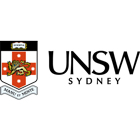Master of Fine Arts (by Research)
Master of Fine Arts (by Research)
The Master of Fine Arts program enables students of proven ability to engage in the sustained investigation at an advanced level of an area of interest or concern in their visual arts practice. This inquiry takes the form of a supervised research project and leads to the exhibitions, performance, publication…
Categories
COURSE DESCRIPTION
The Master of Fine Arts program enables students of proven ability to engage in the sustained investigation at an advanced level of an area of interest or concern in their visual arts practice. This inquiry takes the form of a supervised research project and leads to the exhibitions, performance, publication or screening of artwork/s that are complete, coherent and appropriate to the stated inquiry.
The significance of the research outcomes may be the contribution of new knowledge to the fine arts, the innovation of a distinctive methodology or approach in visual arts practice, poetics or the new application of technologies in visual arts practice. The products of the inquiry should be the creation of high quality studio based work accompanied by a written component containing documentation of the project and its development.
MFA studies are available in the discipline areas of Digital Imaging, Drawing, Film, Installation, Interactive Media, Painting, Performance, Photomedia, Printmaking, Sculpture, Sound, Time-Based Art, Video, Ceramics, Jewellery & Textiles. Studies in a combination of discipline areas are possible. Students work under the guidance of a qualified supervisor who is usually a member of the Faculty’s full-time lecturing staff. Regular seminars are held at which MFA candidates are required to give a presentation of their research at least once during their program.
Some individual on-campus studio space is available to MFA students; all general college facilities and equipment may be accessed. Research students are encouraged to take an active part in college life.
REQUIREMENTS
1. A candidate for the degree shall have been awarded an appropriate degree of Bachelor with Honours from the University of New South Wales or a qualification considered equivalent, from this, another university or tertiary institution at a level acceptable to the Committee.
2. In exceptional cases an applicant who submits evidence of such other academic and professional qualifications as may be approved by the Committee may be permitted to enrol for the degree.
3. If the Committee is not satisfied with the qualifications submitted by an applicant the Committee may require the applicant to undergo such assessment or carry out such work as the Committee may prescribe, before permitting enrolment.
English Language Requirements:
IELTS: 6.5 overall (min. 6.0 in each subtest); TOEFL IBT (Internet Based): 90 overall (min. 23 in writing, 22 in reading, listening and speaking); Pearson (PTE – Academic): 64 overall (min. 54 in each subtest); C1 Advanced Cambridge: 176 overall (min. 169 in each subtest); C2 Proficiency Cambridge: 180 overall (min. 180 in each subtest); UNSW Global University English Entry Course (UEEC): Successful completion with a minimum overall grade of C+ and a minimum grade of C in the writing component.
EDUCATIONAL INSTITUTION
The University of South Australia is a globally connected and engaged university with industry-informed teaching and research that is inventive and adventurous. Ranked in the world’s top 50 under 50^ and with 100% of assessed research rated at or above world-class*, the University is young, innovative and offers students the chance to gain real-world experience.Focused on life beyond the classroom, the University of South Australia offers a practical approach to teaching and learning. Degrees are designed in partnership with industry, giving students opportunities to gain the latest insights and trends and ensuring they graduate career ready.^Ranked in the World’s Top 50 Under 50 – Ranked #29, 2021 QS Top 50 Universities Aged Under 50 and Ranked #46, 2022 THE Young University Rankings*2018 Excellence in Research for Australia (ERA), 4-digit Fields of Research




